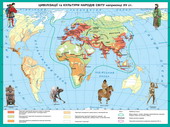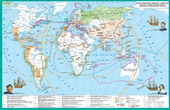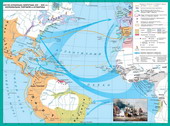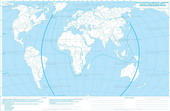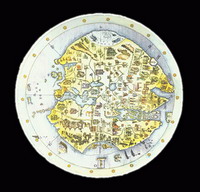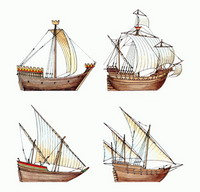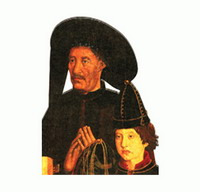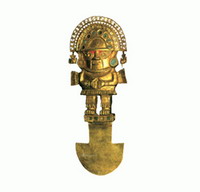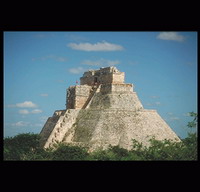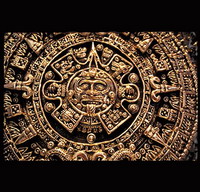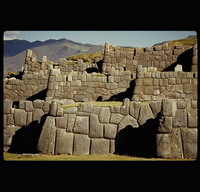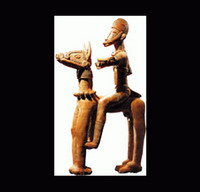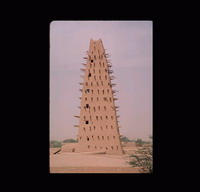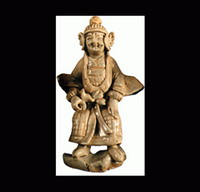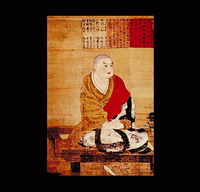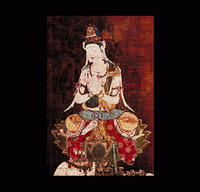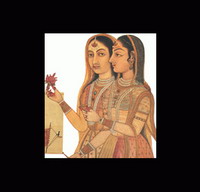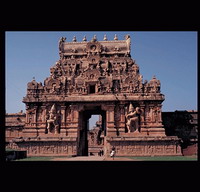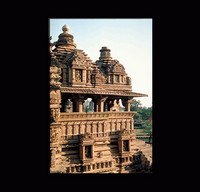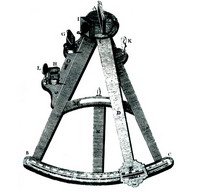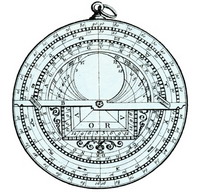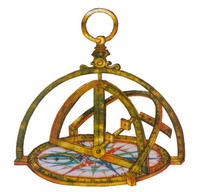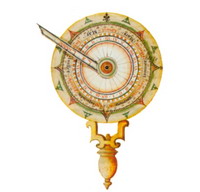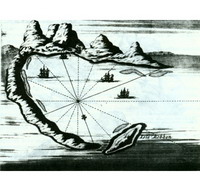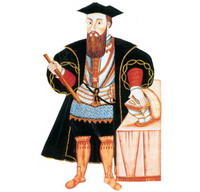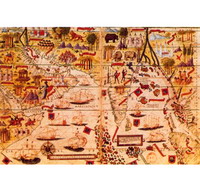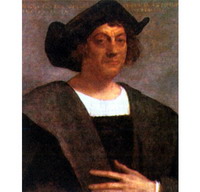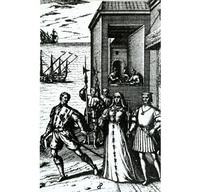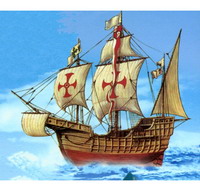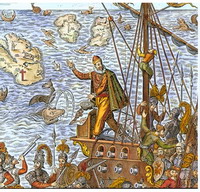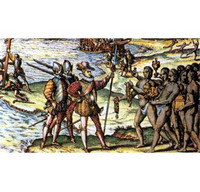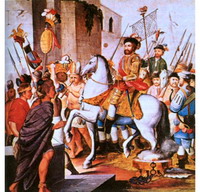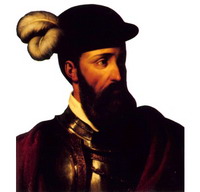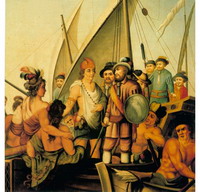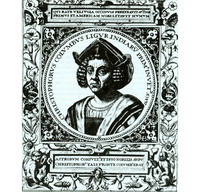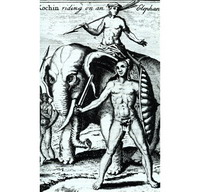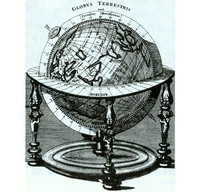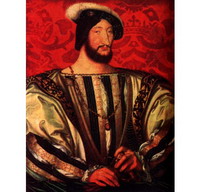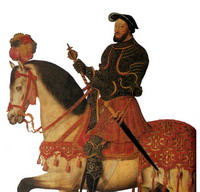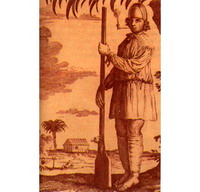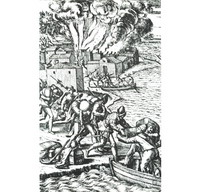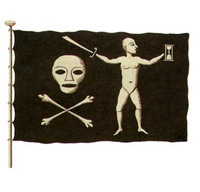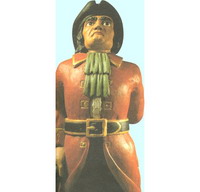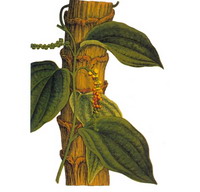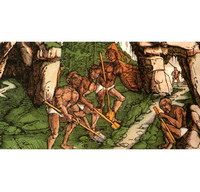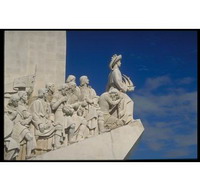Civilization and Culture of the World at the end of XV century.
late medieval world picture the notion of Europeans was extremely imperfect. Boundary of land, known to Europeans, Chinese and Arabs, before the era of great geographical discoveries included not the entire world. Contemporary seafarers sometimes called "prisoners land".
European mariners have long mastered the surrounding sea. However, in the Atlantic Ocean they dare to carry out guided trips only near the coastal landmarks. Further, they believed, is the "sea of darkness" - the oceans, which results from Flood. Fleet to the south is dangerous, because there the devil and the kingdom of the equator, where you can not breathe, they will inevitably perish. Overcoming mile in each direction was south of Europeans own a victory over fear.
gradually gaining experience, European seafarers, traders and other adventurers smilyvishaly. At the end of XV century. they were ready to go swimming in research to find new lands. At the same time, in many places around the world have evolved civilization, unknown to Europeans.
In Central and South America reached its peak during the Aztec empire and the Incas. In Africa, the Europeans felt the impact of only the coastal peoples of the continent.
life in the deep parts of Africa remained unchanged for many centuries as indigenous Africans Living in Europe was considered savages.
South and East Asia at the end of XV century. were regions where the prevailing high level of civilization of the developed economy and culture.
In China, Ming dynasty rules. Despite the flowering of art during its dominion, the development of Chinese society significantly slowed down.
India was divided into numerous states, the largest of which was the Delhi Sultanate. This country is attractive to Europeans for its fabulous wealth, above all, spices, which are highly valued in Europe at that time.
end of the XV century. world was on the verge of great change. That Europeans are destined to begin a new era in human history, setting the direct connections between the continents.
Age of Discovery journey and the end of the XV - XVII century the first half. The establishment of colonial empires
Age of Discovery called discovery, made by European travelers in late XV - in the first half XVII. The impetus for these Europeans were searching for a new sea route to India around the Ottoman possessions. The first started looking for new ways to Eastern countries Portugal and Spain.
winter 1488 Portuguese fleet led by Captain Bartolomeu Dias, having rounded the western coast of Africa, reached its southern edge and reached the Indian Ocean, which was considered previously closed sea. Thus it was established in principle to achieve this through India.
sea route to India along the western coast of Africa was discovered by the expedition in 1497 - 1499 Portuguese explorer Vasco da Gama. Consequently, the Arab merchants lost their monopoly of middlemen in trade with the countries of South Asia, the region and he was in the colonial expansion of Portugal.
first to reach India and West Asia have tried by Christopher Columbus. Led by the Spanish government expedition consisted of three caravels: "Santa Maria", "Pint" and "Nino". October 12, 1492, when after 69-day voyage reached the Bahamas is the date the discovery of America. However, the discovery of Columbus has not been properly assessed once - Spanish treasury did not receive substantial income.
Value Discovery for Spain was understood only in the middle of the XVI century. when after the conquest of Indian states of South and Central America to Europe in large numbers started to receive gold and silver.
Opening of Columbus led to escalation of rivalry between Spain and Portugal under the ownership of new lands. To settle disputes through the Pope was signed two treaties on the delimitation of spheres of influence between these countries. The agreement, signed in 1494 Tordesilyasi identified possession of Spain and Portugal
in the Western Hemisphere, and in 1529 in Zaragoza - in the Eastern Hemisphere.
first round the world made a Spanish expedition led by Ferdinand Magellan in 1519 - 1521 As a result, it was finally established the presence of a huge ocean between America and Asia. It was also the first time exactly proved that the Earth is a ball and received general information about its size.
Anglo-Spanish struggle XVI - XVII century. Colonial trade in the Atlantic
division of the world between Spain and Portugal do not satisfy the other European states. "Let us show the paragraph in the will of Adam" - demanded the French King Francis I - "by which New World should be divided among my brothers, kings of Spain and Portugal, and I shall have my part of his legacy".
banned trade with Spanish colonies in the Western Hemisphere merchants of other countries. However, despite prohibitions merchants journeyed to the New World. Spaniards arrested ships and confiscated their goods. European monarchs, which sought to protect victims, allowed them to seize as compensation for Spanish goods. Maritime piracy XVI - XVII century. Atlantic was a respected and lucrative occupation, how were the nobles and merchants.
From the Mediterranean to the Atlantic crossing the main trade routes. It formed a trade "triangle" between Europe, Africa and America, uniting them in the new system of world trade.
Age of Discovery was an epoch in the history of European nations. They abandoned the Mediterranean-continental vision of the world and spread it abroad, find new meaning in relations with other nations.
 English
English
